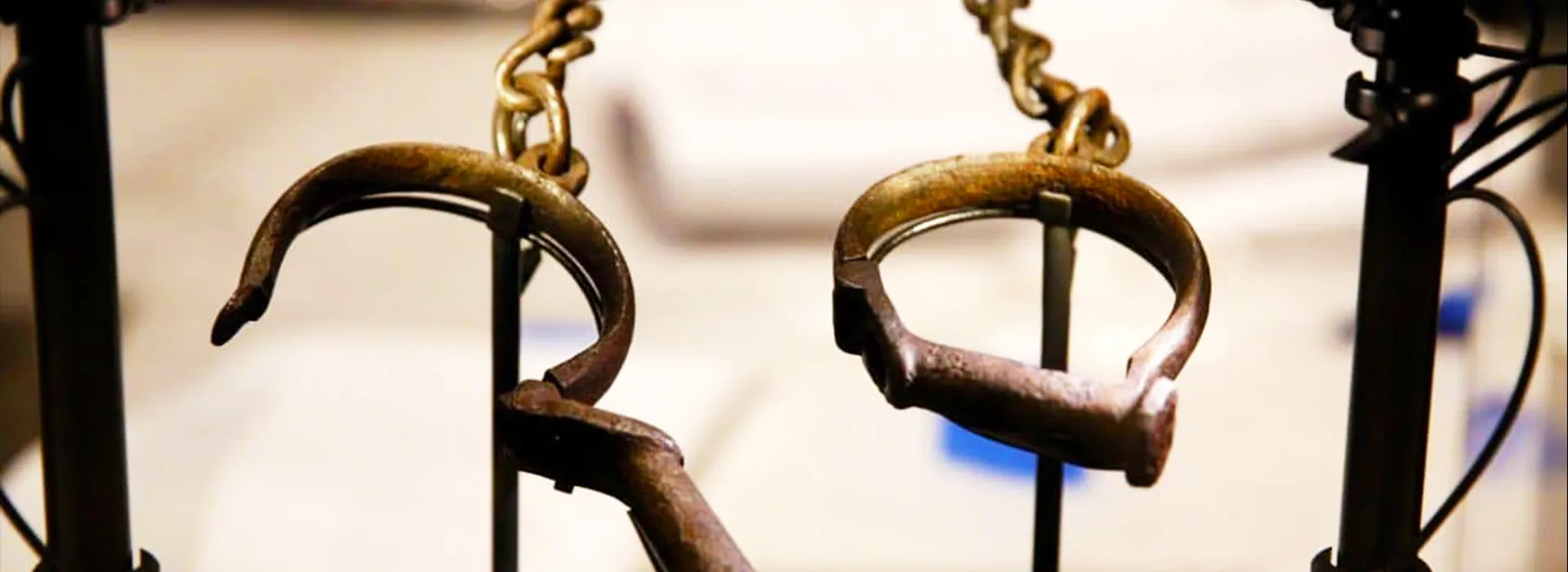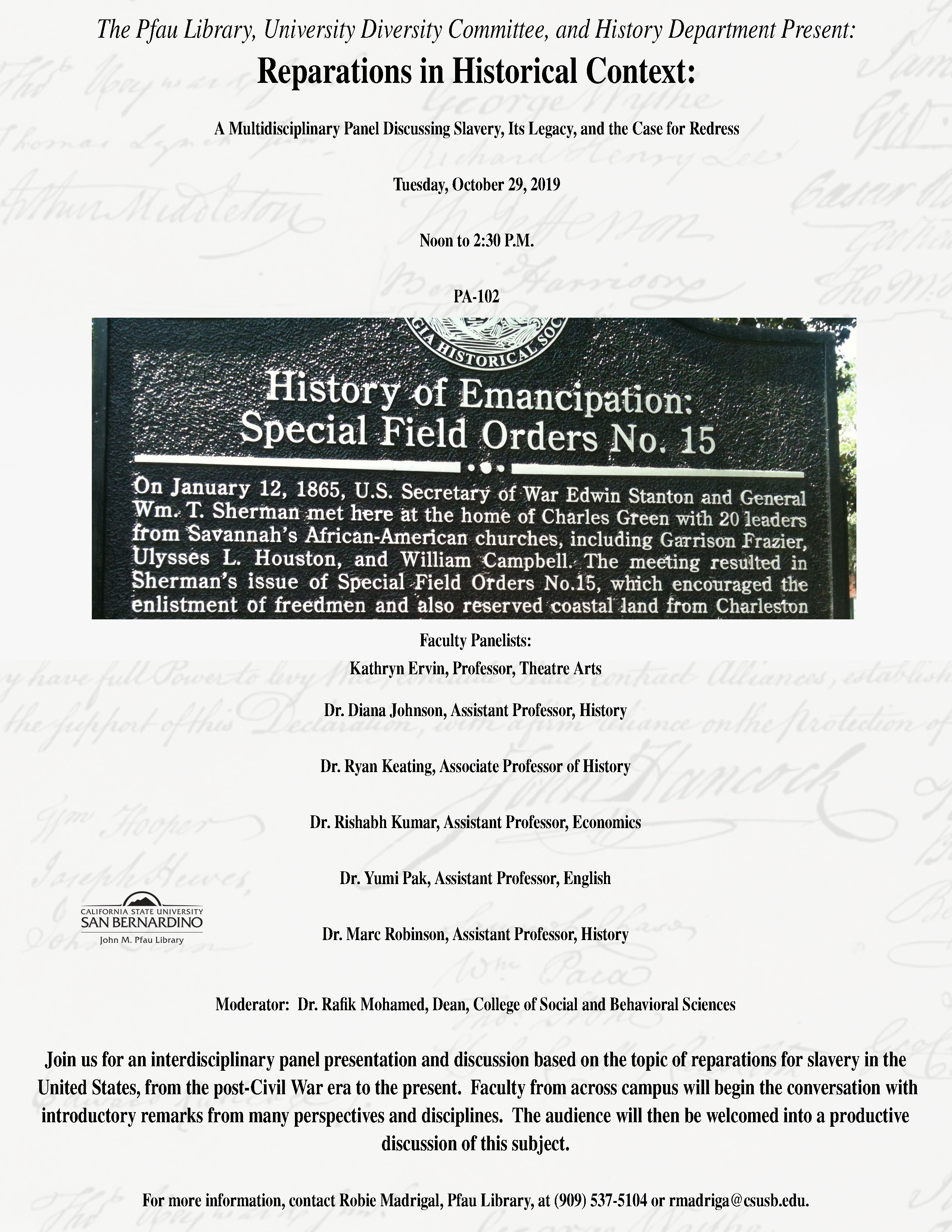Joe Gutierrez Office of Strategic Communication (909) 537-5007 joeg@csusb.edu

Reparations for slavery in the United States – compensating the descendants of slaves brought to America from Africa – will be the topic of a panel discussion on Oct. 29, featuring faculty from a cross section of academic disciplines at Cal State San Bernardino.
“A Multidisciplinary Panel Discussing Slavery, Its Legacy, and the Case for Redress” will be presented beginning at noon in the Performing Arts Recital Hall. The event is free and open to the public. Parking at CSUSB is $6.
The discussion will focus on reparations for slavery in the United States, from the post-Civil War era to the present – a topic that has received significant debate.
The CSUSB panel discussion will feature faculty members Kathryn Ervin, theatre arts; Diana Johnson, history; Ryan Keating, history; Rishabh Kumar, economics; Yumi Pak, English; and Marc Robinson, history. Rafik Mohamed, dean of the university’s College of Social and Behavioral Sciences, will serve as moderator.
After introductory presentations and discussion by the panel, the audience will then be welcomed into a productive discussion of this subject.
In an essay for ThoughtCo, journalist Nadra Kareem Nittle, who writes on race and cultural issues, said, “The effects of both the transatlantic slave trade and colonialism continue to reverberate today, leading activists, human rights groups and the descendants of victims to demand reparations.”
She wrote that the debate over reparations is not new, dating back to the American Civil War. “The U.S. government and other nations where slavery thrived have yet to compensate the descendants of people in bondage. Still, the call for governments to take action has recently grown louder,” Nittle wrote. “In September 2016, a United Nations panel wrote a report that concluded African Americans deserve reparations for enduring centuries of ‘racial terrorism.’”
Earlier in October, students at Georgetown University in Washington, D.C., gathered to protest that “lack of progress on implementing reparations for descendants of slaves once sold by the school,” CBS News reported. Georgetown students, the news service reported, had “voted overwhelmingly in favor of the plan in a referendum in April, but activists say so far little has been done to carry it out.”
And it is also a topic coming up in the 2020 presidential campaign, Patricia Cohen wrote in The New York Times. “Now, in the early phase of the 2020 presidential campaign, the question of compensating black Americans for suffering under slavery and other forms of racial injustice has resurfaced,” Cohen wrote in May. “The current effort focuses on a congressional bill that would commission a study on reparations, a version of legislation first introduced in 1989. …
“If this latest revival has excited supporters, it has worried some party moderates who fear that such an effort would alienate many voters,” she wrote. “Polls have shown a big deficit in popular support. While a majority of black Americans in a 2016 Marist poll supported reparations, whites rejected it by an overwhelming margin.”
Also, for more background, view this video, “Ta-Nehisi Coates: Reparations Are Not Just About Slavery But Also Centuries of Theft & Racial Terror,” an interview with writer Ta-Nehisi Coates on the lasting legacy of American slavery, how the national dialogue about reparations has progressed in the past five years, and his testimony in favor of H.R. 40.
“A Multidisciplinary Panel Discussing Slavery, Its Legacy, and the Case for Redress” is being presented by the university’s John M. Pfau Library, the University Diversity Committee and the CSUSB Department of History.
For more information, contact Robie Madrigal, Pfau Library, at (909) 537-5104 or rmadriga@csusb.edu.
